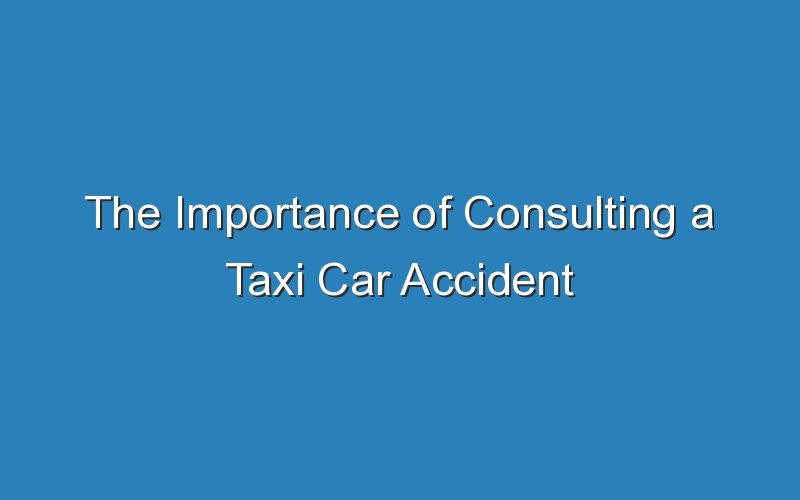If you or a loved one has been injured in a taxi car accident, you may be eligible for compensation. Even if you were not the one at fault, you can pursue compensation from the party who was at fault. Depending on the severity of your injuries, you may be able to recover for lost wages and sick days, or surgery, and medical bills. You may also be able to recover for pain and suffering, as well as your emotional and mental distress.
If you were not wearing a seatbelt when the accident occurred, it is important to consult a taxi car accident lawyer immediately. Your case may be complicated, as the other driver may have contributed to the incident. You may also have to pursue compensation from the cab’s manufacturer if the cab malfunctioned or broke down. Fortunately, Kaplan Lawyers PC works with accident investigators with decades of experience. Your attorney will be able to investigate all the factors that could contribute to your case.
If the accident was the fault of the cab company, you may be eligible for a no-fault claim against it. These types of claims are governed by state law, and you will have to show that you were at fault for the accident in order to receive compensation. In some states, your case will go to court, and it is up to you to decide which party is at fault. However, you may not have the full benefit of your claim unless you have the assistance of a taxi car accident lawyer.
If the cab driver or company is at fault, you can file a no-fault claim against them. In most states, filing a no-fault claim is not difficult, but it takes a long time to resolve. It is essential to consult with a taxi car accident attorney as soon as possible after the incident. This way, you can get the full compensation that you deserve for your injuries. There are many ways to go about pursuing a no-fault claim.
When a taxi driver is at fault, you can also file a claim against them and their company. In some cases, you can even file a no-fault claim against the cab company. In other cases, you can make a claim against the taxi company if the accident is not your fault. Ultimately, your attorney will determine who is responsible and help you get the compensation you deserve. You can also take action to hold the cab driver liable for negligence.
If a cab driver is at fault in a taxi accident, you can file a no-fault claim against their insurance company for damages to your property. This can be a very effective strategy for pursuing a no-fault claim against a taxi driver who was at fault. If you file a no-fault claim, your lawyer must evaluate the situation to determine the proper course of action. Your attorney will also investigate the insurance company’s policies and ensure that they pay out the full amount you deserve.
When the driver of a taxi is at fault in a taxi accident, you can seek compensation for the injuries you suffered. If you were the victim of a cab accident, you should be able to receive compensation for the medical bills, as well as the property damage caused by the driver. If the cab company was at fault, it would be your responsibility to contact the insurance company and file a no-fault claim.
In addition to the medical bills, you can also file a no-fault claim against the taxi driver and its insurance company. In most states, no-fault claims are filed if the cab driver was at fault. In such a case, you will be able to file a claim against the taxi company that caused the accident. A taxi accident can lead to serious and permanent injuries. If the cab driver and the cab owner are at fault, you may be able to pursue a no-fault claim against the alleged driver. Then, you can file a no-fault lawsuit against the occupant.
If you or a loved one has been injured in a taxi accident, you may have grounds to sue the cab driver and the company of the cab driver. In some cases, you may even be able to recover damages for broken bones, traumatic brain injury, spinal cord damage, and burns. In addition, you may be able to recover for any other losses you have sustained. You may need ongoing medical care and may need to make a claim for a personal injury.

